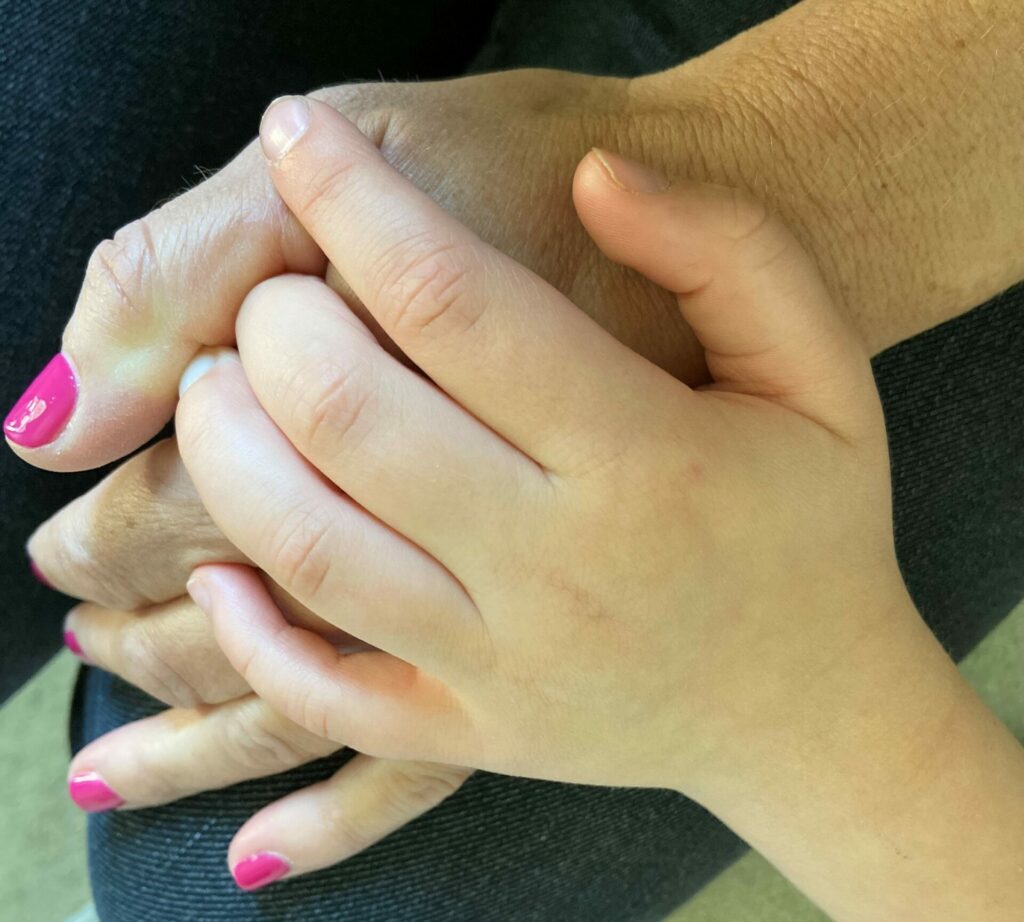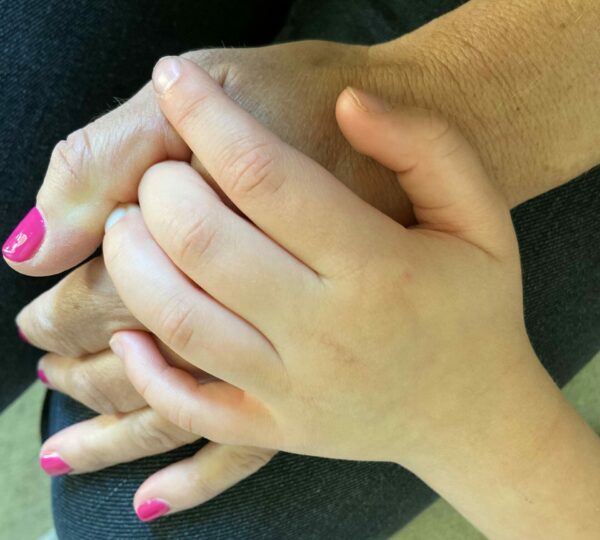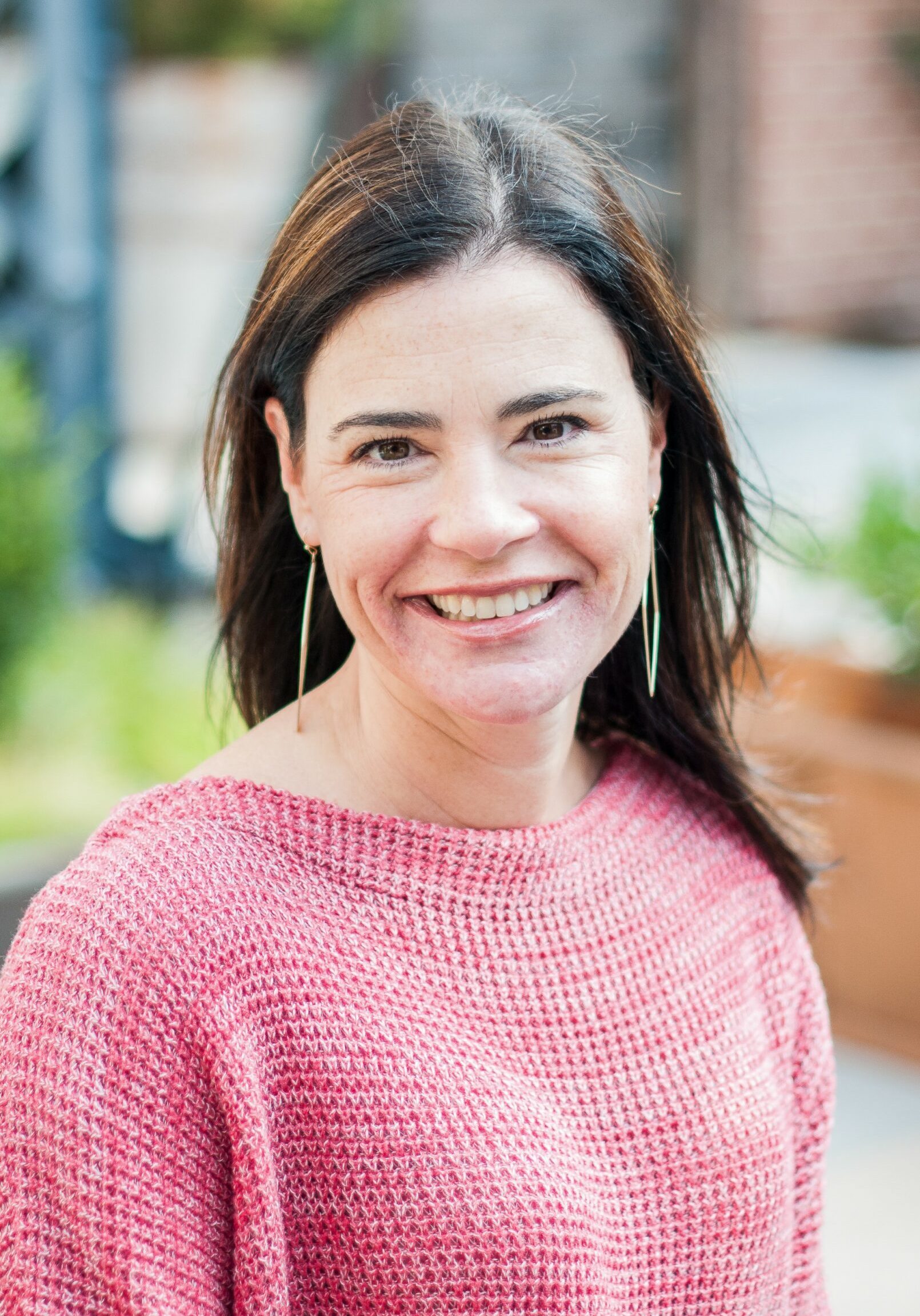
Teaching My Kids They Are White
Why do you spend time talking to your young kids about their White skin and privilege?
This was a question I got recently at a discussion of my newly published book, The Colorful Image of God. The participant asked in an inquisitive tone (which I appreciated!), but it was clear based on her commentary leading up to the question that she wasn’t entirely sure this was a good idea. The implication was a bit of “are you sure that’s necessary?” and also had a little bit of “won’t they feel bad about their skin color if you talk about it so much?” I gave a brief answer about wanting to ensure they had conversations about race inside our home, recognizing that the world is telling them lots about race regardless of whether we discuss it as a family. I mentioned wanting to ensure that my kids used their White-skinned privilege for good in the world, and didn’t let the superiority that they would naturally feel from the world go to their heads unchecked. The conversation moved on but I couldn’t help but think of this simple question. Why did I care about this so much with my kids? I had a passing thought of “Am I overdialing on this?” So with a bit more reflection space, I wanted to share a more thorough answer to this question, in case there are other moms, dads, or guardians raising White kids out there who could benefit from this thinking.
First, a worldview. My husband and I believe wholeheartedly in the never-ending love of God. We take very seriously his two greatest commandments to love God and love our neighbors. In our house, we have a big sign on the wall that says, “Love God. Love people.” So in general, we are trying to raise kind kids who love others well. Beyond that, we want our kids to be adults who can discern real Christianity from the fake kind. This isn’t about judging others or trying to determine who has faith or not, but rather the ability to look around in the world and make decisions about how to live and treat others based on the life of Jesus. What’s really hard today is that it is easy to observe people who go to church and claim to be Christians acting in ways totally contrary to the ways of Jesus. I am not talking about everyday mess-ups that we all have (I am the first to admit I don’t think and act in the ways of Jesus all the time); I am talking about people weaponizing scripture and treating others horribly, “in the name of Jesus.” I want my kids to be able to pick out the bad fruit from the good fruit to use a biblical reference, and to know that there are things they will hear in churches, Christian spaces, and from church-going friends that just don’t line up with “love God and love your neighbor.” Along those lines, I want our kids to be radically inclusive, recognizing that God created ALL PEOPLE in his image and that we are all inherently valuable. There is not one person that is better than anyone else. That doesn’t mean some people don’t make better or worse decisions, but it does mean that we all deeply matter to God.
Knowing that is our general approach to all topics, I like to point out things that are hypocritical or “not of Jesus” when I see them to help my kids begin their own discernment process. Whether it’s about money, the way we interact with people, or how we treat our Earth, there are lots of good discussion points here. Given the amount of racism I see in the world around me, RACE is one of those things that I want my kids to know that people made up. God never intended for there to be a hierarchy based on skin color in this beautifully diverse world. Sure, he created difference (thank God!) but it was a group of humans that determined that people with light skin (those we now cluster together as White) would be seen as superior and those with dark skin would be “lesser than.” This isn’t a post about the history of our own country but there is plenty out there to help one understand how this came about…..this article on PBS is a good start.
Back to the point of sharing why I talk to my White children about their own skin color, I want them to understand that they will be given an unearned advantage in this world, just because they are White. More importantly, I want them to recognize that their friends who have darker skin than them will face battles they can never imagine, simply because they have more melanin. I hope what I began to feel at age 30, they will begin to feel at a much younger age, and that is how unjust it is that lots of people with brown and black skin get treated unfairly simply because of that one difference. My hope is that they will feel some deep emotions related to this that will cause them to act differently in life- to speak out when they hear a racist joke on the playground and then speak out again when they hear the racist joke in the boardroom one day. To be aware of and grateful for how diverse their classrooms at their current school are, and ask why other settings they are in aren’t as diverse and think about what their role may be in changing that.
Consider this from EmbraceRace, an awesome resource for adults trying to raise culturally conscious kids. “We know that within a few months of birth, babies prefer own-race faces, and that by roughly age 3 kids start to form judgments about others based on racial differences. And by kindergarten, kids perceive that different racial groups have different social status.” (emphasis mine) Lucretia Berry, founder of Brownicity speaks about this in her brilliant TedTalk; she reminds us that our society is incredibly racialized and that our kids will get messages about race early- from friends, media, school, and so forth; therefore if we want our kids to believe differently than the dominant message they will receive (Black and brown people are “less than” White people), we better work actively to teach them otherwise.
I see a lot of fear and misunderstanding from White parents in the conversations (debates) about what kids should learn related to race in schools. There is a narrative from White parents that they don’t think their kids should be made to feel bad because they are White or that they simply don’t want to expose their kids to uncomfortable conversations. I struggle with this but as I put myself in the shoes of these parents, here is what I might share.
- In general, being uncomfortable can be a good thing for our own development. Whether it is facing a fear, learning a new skill, or speaking up for someone when it is easier to be quiet, feelings of butterflies or discomfort in general are usually a good thing. We grow the most in moments of discomfort. And if we want to connect even further to the mental health of teens, check out what this article shares about the increasingly popular “accommodative parenting style” and why it may be contributing to our kids’ anxiety.
- When it comes to a hard topic like slavery, again, it is okay for our White children to feel a little bad. I don’t believe there is any teacher out there designing lessons to target White kids and make them feel extra awful during history lessons, but again, if my White children feel a touch of guilt and think “I can’t believe White people did that,” I am okay with that. My rationale is that this “icky feeling,” when coupled with thoughtful questions from educators and myself as the parent, could produce a level of critical thinking about what we don’t need to repeat as White people.
- Furthermore, race or ethnicity aside, I would hope that all people would feel some level of discomfort when facing horrible things that happen in our world, in history or in the current events section of the news. I like how this reporter named it, “The travesties that took place on American soil — whether the slaughter of indigenous peoples, the lynching of Black men and women, or the degrading treatment of non-white immigrants — should make everyone uncomfortable.”
- Finally, if empathy is one of the greatest things we can teach our children (and I believe especially if we are trying to raise kids who change the world then empathy is one of the greatest things we can help cultivate), then feeling a touch bad could allow my White children to step into the shoes of people of color who are made to feed bad often, simply because their skin is dark.
To be clear, I do not want anyone to think I am sitting around at every meal telling my kids they are White and asking them to think about the implications of this on our nation! Culturally competent is one of many adjectives I would use to describe the types of kids (adults) I am attempting to raise. I encourage parents to take a breath when they hear the debates about teaching race-related topics in schools and really examine their fears. Your White kiddos are going to be just fine with some hard conversations, and honestly I believe they will be better adults with healthier relationships, too.
I hope that is helpful in terms of why I want my kids to know they are White and more so over time to understand how the fake and harmful construct of Whiteness operates in this world. If you are beginning these conversations, here is some encouragement from my book. If this content intrigues you, I hope you will buy a copy and share with friends, too.
I may not be doing this perfectly, but I am so convicted that we are supposed to be doing it. We have got to have conversations with our kids to help them understand racism at an early age (and yes, we can add all the other isms here too). In the same way that we tell them not to be bullies on the playground and to stand up for kids who are being bullied, let’s talk about mean comments that may be about race. They will be better humans for it, I am sure.
In addition to talking to our kids about race, there are other things we can do to help limit the thoughts that will enter their heads based on the smog that is in the air. Our brains, and our kids’ brains, come to conclusions about groups of people based on what we see. Expanding what we see in the first place is a really important tool here. For example, if we only see images of Black men in television shows and movies that portray them as criminals or gang members, our brains will start to think Black men = bad guys. If, however, we consume media that allows us to see Black men as pastors, fathers, doctors, pilots, and more, when we see a Black man we will not be so quick to label him in our brains. So, it is important for your kids to consume media (books, TV, movies, etc.) that expand their worldview. They need books with characters who represent all kinds of identities, not just White ones. Similarly, they need toys that are diverse as well. Of course, it is important for kids to see themselves in toys, so buy your White, blond baby a White, blond baby doll. But also buy her some Black and brown baby dolls, too, and teach her that all kids are beautiful. Raise children who know that they are White and that God loves them as they were made, but also that God made so many other types of people and that they are beautiful too. There is not one way that beautiful looks, or smart looks, or funny looks, or creative looks, and sadly, if we aren’t intentional as parents about making this explicit, the world may tell our kids otherwise.


